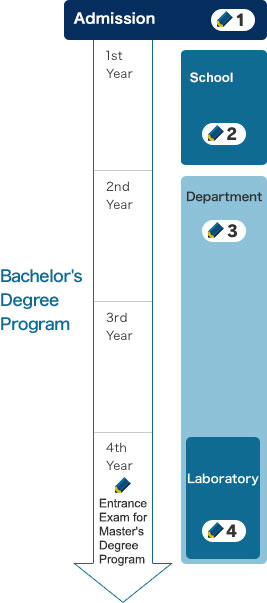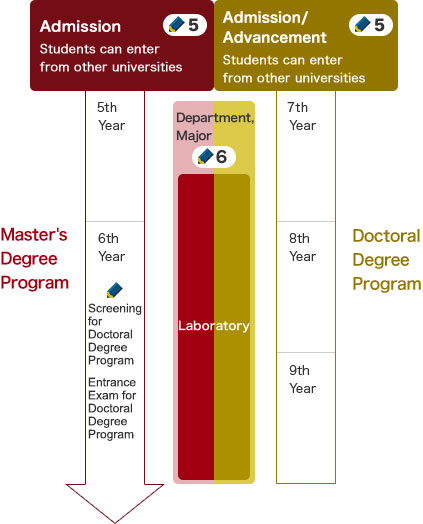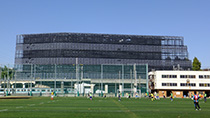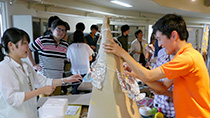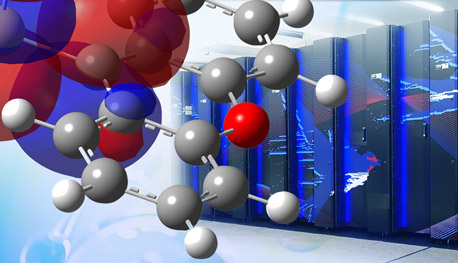Four University Alliance's Multidisciplinary Program
Tokyo Institute of Technology has joined with Tokyo Medical and Dental University, Hitotsubashi University and Tokyo University of Foreign Studies to form the Confederation of The Four Universities. Based on this confederation, the following multidisciplinary majors are provided.
- Comprehensive Life Sciences
- Overseas Cooperation
- Research on Living Spaces
- Scientific Technology and Intellectual Property
- Technology and Management
- General Arts and Sciences
- Medical Engineering
- International Technical Writing
Students of these courses can study a specialized field at one of the other universities in the alliance while learning specialized knowledge and technology at Science Tokyo. If students earn the necessary number of credits from courses designated by the major and pass, completion of the course will be certified.
Global Scientists and Engineers Course
This course uses Science Tokyo's education objectives and features to train talented global individuals.
Experts in advanced science and technology play an active role not only in industrialized countries but also in various fields in emerging countries. In addition to high expertise, individuals with advanced science and technology skills who play a globally active role are expected to have an inquiring mind and a daring spirit, the abilities to exhibit leadership to solve problems while understanding other cultures, and the skills to cooperate with people from other cultures and specialized backgrounds.
Because about 90% of graduates from the Bachelor's Program continue on to graduate school at Science Tokyo, we provide the "Global Scientists and Engineers Course" with the goal of producing graduates who can exhibit leadership around the world including in emerging countries.
. Any information published on this site will be valid in relation to Science Tokyo.


